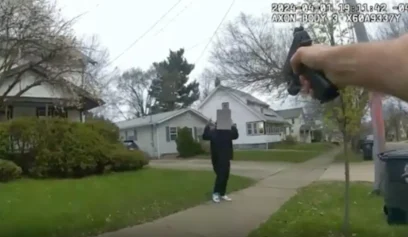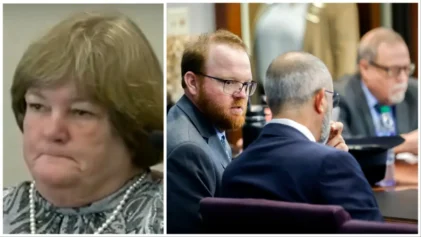Last year, 32 year-old Dasha Kelly lost her job as a card dealer in Las Vegas when the pandemic forced casinos to close down, forcing her to fall behind on her rent.
Kelly’s family almost fell victim to the expiration of the eviction moratorium as her plight garnered national attention.
Kelly is one of more than 11 million Americans who are behind on their rent, acording to the Center on Budget and Policy Priorities.
Kelly started a GoFundMe page after the eviction moratorium expired in hopes of raising $2,000. But in only 24 hours the campaign raised more than $172,000 from more than 2,700 donors. Most of those donations were $10 and $20, but some were as high as $15,000.
“This is not OK. We cannot just allow humans, 7 million of them possibly, over the next few weeks be sent to the streets,” Missouri Rep. Cori Bush said as she spoke out about the Aug. 1 expiration of the federal eviction moratorium.
That weekend Bush slept outside of the U.S. Capitol building to protest on behalf of millions of Americans that could be displaced by the moratorium’s expiration.
By last week the federal government issued a new, more limited freeze that remains in effect through Oct. 3.
U.S. Sen. Elizabeth Warren also came out to show her support for Bush’s protest.
“We still have tens of billions that is unspent. I don’t want to use that money after people have been moved out of their homes. I want to use that money to keep people in their homes,” the Massachusetts senator said.
Like the previous order, the two-month moratorium comes from the Centers for Disease Control and Prevention.
The new ban on evictions covers parts of the United States that are experiencing what the CDC calls “substanstial” and “high” spread of the coronavirus. That includes the vast majority of U.S. counties.
The order, which cites the rise of the delta variant, says: “Without this order, eviction in these higher transmission areas would likely exacerbate the increase in cases.”
CDC Director Rochelle Walensky announced that with such high transmission rates it was necessary to issues a new order to make sure Americans who were at risk of eviction could be stably housed.


